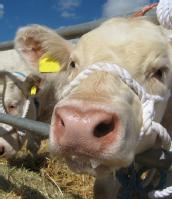Life Sciences News
See our Latest Journal Publications
Man’s impact on flax evolution more limited than thought
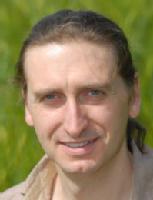 Flax naturally adapted to new environments rather than by human influence due to a set of genes that enable it to change its architecture according to research led by Professor Robin Allaby.
Flax naturally adapted to new environments rather than by human influence due to a set of genes that enable it to change its architecture according to research led by Professor Robin Allaby.
The evolution of Maize is more complex than thought
 New evidence reveals that the evolution of Maize in South America is more complex than initially thought, and there was a further geographical area in which partial domestication occurred in the Southwest Amazon - according to an international collaboration of researchers including the University of Warwick, and published in the journal Science.
New evidence reveals that the evolution of Maize in South America is more complex than initially thought, and there was a further geographical area in which partial domestication occurred in the Southwest Amazon - according to an international collaboration of researchers including the University of Warwick, and published in the journal Science.
Crops can be grown in Arsenic contaminated soil without being poisonous
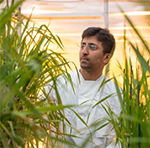 Researchers in Life Sciences are working on ways to contribute to developing safe crops which can be grown in As contaminated soil but reduce the amount of As going to the edible part.
Researchers in Life Sciences are working on ways to contribute to developing safe crops which can be grown in As contaminated soil but reduce the amount of As going to the edible part.
Researchers wake-up DNA from soil bacteria to discover novel acid antibiotic
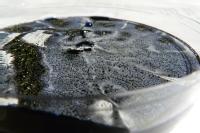 A team led by Dr Christophe Corre (SLS) and Dr Manuela Tosin (Chemistry) have characterised a new bioactive natural product whose derivatives could be used as antibiotics and help fight infections.
A team led by Dr Christophe Corre (SLS) and Dr Manuela Tosin (Chemistry) have characterised a new bioactive natural product whose derivatives could be used as antibiotics and help fight infections.
Arctic's Global Seed Vault to receive 101 samples from Warwick's Vegetable Genebank
101 seed samples from 18 different types of crop species including onions, carrots and cauliflower are to be deposited at the Svalbard Global Seed Vault in Arctic Norway on the 31 October 2018, from the UK Vegetable Genebank (UKVGB) at the University of Warwick.
UK scientists to join Arctic research ship 'drifting' past North Pole
 UK scientists will join what could be the largest-scale Arctic research expedition ever planned when the German research ship RV Polarstern is deliberately lodged into sea ice to drift past the North Pole. Research includes Dr Hendrik Schaefer of the University of Warwick’s School of Life Sciences.
UK scientists will join what could be the largest-scale Arctic research expedition ever planned when the German research ship RV Polarstern is deliberately lodged into sea ice to drift past the North Pole. Research includes Dr Hendrik Schaefer of the University of Warwick’s School of Life Sciences.
Image courtesy of Alfred Wegener Institute.
Real-time foot-and-mouth strategy to better fight disease
Professor Laura Green moving to University of Birmingham
Congratulations to Deputy Pro-Vice-Chancellor (interdisciplinary research and impact) and former Head of the School of Life Sciences, Professor Laura Green, who has been appointed to the role of Pro-Vice-Chancellor for Life and Environmental Sciences at the University of Birmingham. She will take up her new role on 1 October 2018.
Enzyme discovery could help in fight against TB
An enzyme structure discovery made by scientists at the University of Warwick could help to eradicate tuberculosis (TB).
Research by a team led by Dr Elizabeth Fullam, has revealed new findings about an enzyme found in Mycobacterium tuberculosis (Mtb) the bacterium that causes TB. TB causes more deaths than any other infectious disease, including from HIV and malaria.
Two million pounds awarded to fight disease in East Africa
The University of Warwick has been awarded £2 million to tackle the spread of viruses in East Africa.
The award has been made to the NIHR Global Health Research Group on the Application of Genomics and Modelling to the Control of Virus Pathogens (GeMVi) in East Africa at the University of Warwick. GeMVi brings together expertise in pathogen sequencing and predicative modelling. Life Sciences academics Professor James Nokes and Professor Matt Keeling are co-investigators.
Dr Dan Smith named as honorary SLS Industry Professor
Dr Smith is currently Chief Scientific Officer at Cobra Biologics Ltd., but he started his scientific career here at Warwick, with a BSc in Biochemistry then a PhD on the mechanism of action at the cellular level of cytotoxic proteins such as ricin.
By becoming an honorary Industrial Professor in our School, Dr. Smith will bring widespread experience in both the workings of a multi-million budget R&D company in a sector at the forefront of biomedical products and also in academic research. His specific expertise in knowledge transfer and experience in developing successful collaborations between regional development agencies, industry and academics will be enormously useful.
Dr Smith will bring many links with industries that we do not yet interact with, both in the UK and internationally. He will contribute ideas and contacts to help our undergraduate students secure industrial placements, a key strategic development area for the School.
Dr Smith will also aid our technology transfer to support start-ups with commercial promise. His past work is highly interdisciplinary in both the academic and industrial sides in chemistry and biology, knowledge of which can massively impact startup success.
We welcome him to the School.
Memory processes depend on protein ‘off-switch’ – could lead to new Alzheimer’s treatments
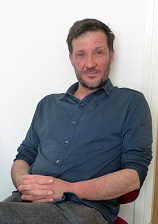 Memory, learning and cognitive flexibility depend on a protein ‘off-switch’ in the brain, according to a breakthrough discovery made by an international research collaboration co-led by Dr Mark Wall at the University of Warwick.
Memory, learning and cognitive flexibility depend on a protein ‘off-switch’ in the brain, according to a breakthrough discovery made by an international research collaboration co-led by Dr Mark Wall at the University of Warwick.
This new knowledge could enable us to better understand and combat neurological diseases which inhibit memory, such as Alzheimer’s.
Life Sciences gets share of £2.6 million research funding from Diabetes UK
 Diabetes UK has committed to invest £2.6 million in 19 brand new projects which aim to make life-changing improvements in diabetes care, and reduce people’s risk of Type 2 diabetes.
Diabetes UK has committed to invest £2.6 million in 19 brand new projects which aim to make life-changing improvements in diabetes care, and reduce people’s risk of Type 2 diabetes.
The funding will be given to projects looking into Type 1, Type 2 and gestational diabetes.
In one of these projects, Dr Freya Harrison, from the School of Life Sciences, will be using medieval remedies to find new sources of antibiotics. She has already discovered a combination that can kill antibiotic-resistant bacteria in the lab.
Warwick-backed state-of-the-art cryo-electron microscopy facility opened
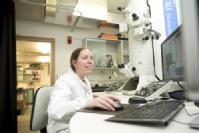 A new state-of-the-art Cryo-Electron Microscope (Cryo-EM) facility that will advance the understanding of the processes of life has been officially opened.
A new state-of-the-art Cryo-Electron Microscope (Cryo-EM) facility that will advance the understanding of the processes of life has been officially opened.
The Midlands Regional Cryo-EM Facility is the result of a collaboration between the University of Warwick, Nottingham, Birmingham and Leicester, led by the University of Leicester. The universities are members of the Midlands Innovation partnership. The total investment exceeds £6M with £3.7M from the Medical Research Council (MRC). The four partner Universities provided the remaining funds.
Professor Laura Green appointed to BBSRC Council
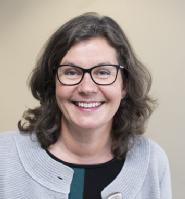 Professor Laura Green OBE, Deputy Pro Vice Chancellor (Research) at the University of Warwick, has been appointed to the Council of the Biotechnology and Biological Sciences Research Council (BBSRC).
Professor Laura Green OBE, Deputy Pro Vice Chancellor (Research) at the University of Warwick, has been appointed to the Council of the Biotechnology and Biological Sciences Research Council (BBSRC).
University of Warwick brings TB awareness to Coventry on World TB Day
Scientists from the University of Warwick will be helping to promote an important public health message about tuberculosis (TB) this weekend in Coventry.
On World TB Day (Saturday 24 March) researchers from the Fullam lab at the University of Warwick will be running a public information stand at the Herbert Museum and Art Gallery to help raise awareness of TB and what they are trying to do to combat this deadly disease. They will also be at Coventry Library on Tuesday 27 March.
Drug-producing bacteria possible with synthetic biology breakthrough
Bacteria could be programmed to efficiently produce drugs, thanks to breakthrough research into synthetic biology using engineering principles, from the University of Warwick and the University of Surrey.
Led by the Warwick Integrative Synthetic Biology Centre and the Faculty of Health and Medical Sciences at the University of Surrey, new research has discovered how to dynamically manage the allocation of essential resources inside engineered cells - advancing the potential of synthetically programming cells to combat disease and produce new drugs.
The researchers have developed a way to efficiently control the distribution of ribosomes – microscopic ‘factories’ inside cells that build proteins that keep the cell alive and functional – to both the synthetic circuit and the host cell.
Global mapping of planktonic "chameleons"
Cyanobacteria of the genus Synechococcus are ubiquitous in the world ocean and contribute significantly to both the marine food chain and the carbon cycle. Like chameleons of the plankton world, some of them are able to change pigmentation to match the ambient light color. Yet, their distribution or abundance has remained unknown so far. Research scientists from CNRS and CEA, together with international collaborators including Professor Dave Scanlan from the University of Warwick, have just demonstrated these color-shifters are the most abundant group of Synechococcus in the ocean —representing about 40% of the whole population at depth and high latitudes. This adaptive capacity is an important asset for such planktonic organisms that are carried around by currents in areas where the color of the water varies as it allows them to keep photosynthesizing efficiently and to supply energy to the rest of the food web. This discovery represents a major breakthrough in our understanding of these organisms, which prove to be excellent bio-indicators of climate change.
Their findings are published in PNAS (February 12, 2018)
VirionHealth receives up to $4.2M from DARPA

University of Warwick spin-out company, VirionHealth - a new biotechnology company developing novel therapeutics for respiratory viral infections, has announced that it has won non-dilutive funding worth up to $4.2 million from the US Defense Advanced Research Projects Agency (DARPA).
Founded in 2017 on pioneering research of Professors Easton and Dimmock in the School of Life Sciences, VirionHealth is developing a new class of biological antivirals to create improved therapeutics for respiratory viral infections, focusing on prevention and treatment of influenza and respiratory syncytial virus (RSV). The company is a world leader in the development of precisely engineered, non-infectious, defective interfering particles. www.virionhealth.com
Read Press Release
New TB drugs possible with understanding of old antibiotic
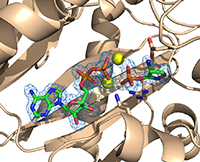 Tuberculosis, and other life-threatening microbial diseases, could be more effectively tackled with future drugs, thanks to new research into an old antibiotic led by Professor David Roper at Warwick’s School of Life Sciences and Dr Luiz Pedro Carvalho from The Francis Crick Institute.
Tuberculosis, and other life-threatening microbial diseases, could be more effectively tackled with future drugs, thanks to new research into an old antibiotic led by Professor David Roper at Warwick’s School of Life Sciences and Dr Luiz Pedro Carvalho from The Francis Crick Institute.

